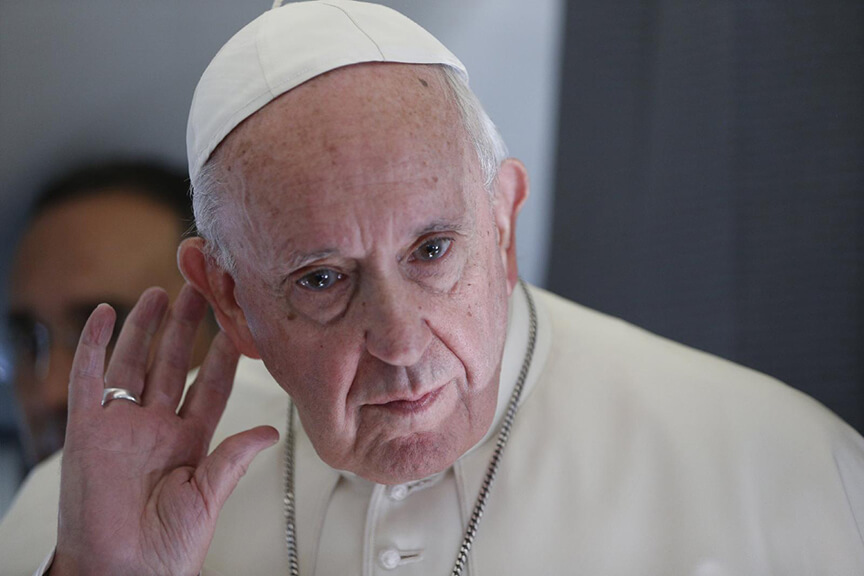
On Monday, March 13, the Church marked the 10th anniversary of the election of Pope Francis. It’s been a decade of energy and change and no small amount of controversy for the Church.
John Allen, a journalist with many years of experience covering the Vatican for American audiences, recently told OSV News, “Pope Francis is one of those once in a generation leaders who comes into office with an extremely strong sense of where he wants to take the Church. And his vision is a dramatic change from what had come before. And he is not intimidated by opposition. And so he has charted a bold new course.”
That bold new course most often is pointed toward the people on the margins. Time and time again, Pope Francis has encouraged Catholics to bring God’s mercy and the hope found in Christ to our brothers and sisters who are struggling, who are suffering, who are often excluded. He has urged us to throw open the doors of the Church so we can walk through them as missionary disciples to propose anew to the world the good news of Jesus Christ.
He has matched his words with actions. Early in his papacy, he visited the Italian island of Lampedusa to highlight the plight of migrants who brave a dangerous crossing of the Mediterranean Sea to seek a better life in Europe. After a trip to a refugee camp in Greece, the pope returned to the Vatican with three families escaping the war in Syria to be resettled in Italy. He had the Palazzo Migliori, a Roman palace owned by the Church, converted into a homeless shelter. He has visited prisons and hospitals.
“He does what he preaches, that’s the key to understanding his actions,” Cardinal Konrad Krajewski, prefect of the Dicastery for the Service of Charity, told OSV News.
Pope Francis has also courted controversy. Fearing that the use of the Latin Mass was undermining unity in the Church, the pope has restricted its use. On the issue of sexual ethics, Francis has upheld Church teaching but has preached a more compassionate approach. He has openly discussed the possibility of allowing divorced Catholics to receive Communion.
The pope’s response to all these issues and others have alarmed some in the Church and sparked sharp criticism from some quarters. The pope has acknowledged that criticism can be annoying, but he also sees value in it. “Criticism helps you to grow and improve things,” he told an interviewer earlier this year.
Pope Francis, most famously, has brought a certain humility to the papacy. Rather than live in the luxurious papal accommodations in the Vatican’s Apostolic Palace, he has chosen to live in a simple two-room apartment at Casa Santa Marta where he celebrates Mass regularly. When he was introduced to the crowd in St. Peter’s Square awaiting a new pope, he asked the world to pray for him as he took on the enormous responsibility of leading the Church.
He is still asking for our prayers. On the anniversary of his election, he tweeted, “Thank you for having accompanied me with your prayers. Please continue to do so.”
We offer our prayers for Pope Francis and for the Church as they bring the healing message of Christ’s mercy to a divided world.









